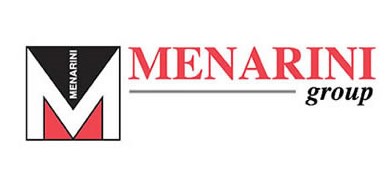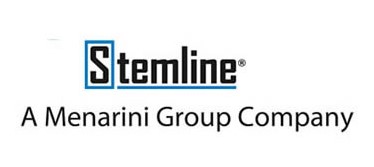Menarini Group Announces New Data on Elacestrant at 2023 ESMO Breast Cancer Congress and 2023 ASCO Annual Meeting


FLORENCE (Italy) and New York, NY, May 9, 2023 – The Menarini Group (“Menarini”), a leading Italian pharmaceutical and diagnostics company, and Stemline Therapeutics (“Stemline”), a wholly-owned subsidiary of the Menarini Group, announced today that they will present new data related to elacestrant in upcoming congresses.
Elacestrant has been approved by the FDA for treatment of postmenopausal women or adult men with estrogen receptor (ER)-positive, human epidermal growth factor receptor 2 (HER2)-negative, ESR1-mutated advanced or metastatic breast cancer with disease progression following at least one line of endocrine therapy. New data will be presented at the upcoming 2023 European Society for Medical Oncology (ESMO) Breast Cancer Congress and the 2023 American Society of Clinical Oncology (ASCO) Annual Meeting.
“ER+/HER2- breast cancer constitutes 70% of all breast cancers. ORSERDU® (elacestrant) is the first new endocrine therapy in 20 years approved by the FDA addressing ER+, HER2-, ESR1-mutated metastatic breast cancer (mBC), a subgroup that appears in up to 40% of patients in second line mBC and beyond, and who have poor outcomes,” said Elcin Barker Ergun, CEO of the Menarini Group. “We continue to generate new data for elacestrant in different subgroups, as well as quality of life data, which is important because being able to lead a normal life when under treatment is a vital goal for patients suffering from breast cancer.”
See below for details of the Menarini Group/Stemline Therapeutics’ upcoming presentations on elacestrant.
ESMO Breast Cancer Congress 2023
Abstract Title: EMERALD trial analysis of patient-reported outcomes (PROs) in patients with ER+/HER2− advanced or metastatic breast cancer (mBC) comparing oral elacestrant vs standard of care (SoC) endocrine therapy
Abstract #: 1880
Session Title: Proffered Paper session 1 (ID 7)§
Session Date and Time: May 11, 2023; 2:00-3:30 PM CEST, Hamburg Hall
Presentation Type: Oral (proffered paper)
2023 ASCO Annual Meeting
Abstract Title: Oral elacestrant vs standard-of-care in estrogen receptor-positive, HER2-negative (ER+/HER2-) advanced or metastatic breast cancer (mBC) without detectable ESR1 mutation (EMERALD): Subgroup analysis by prior duration of CDK4/6i plus endocrine therapy (ET)
Abstract #: 1070 | Poster Bd #: 291
Session Title: Breast Cancer – Metastatic
Session Date and Time: June 4, 2023; 8:00AM CDT, Hall A
Presentation Type: Poster
About the EMERALD Phase 3 Study (NCT03778931)
The EMERALD Phase 3 trial is a randomized, open label, active-controlled study evaluating elacestrant as second- or third-line monotherapy in ER+, HER2- advanced/metastatic breast cancer patients. The study enrolled 478 patients who had received prior treatment with one or two lines of endocrine therapy, including a CDK4/6 inhibitor. Patients in the study were randomized to receive either elacestrant or the investigator's choice of an approved hormonal agent. The primary endpoints of the study were progression-free survival (PFS) in the overall patient population and in patients with estrogen receptor 1 gene (ESR1) mutations.
About ORSERDU® (elacestrant)
Indication
ORSERDU (elacestrant), 345 mg tablets, is approved by the U.S. Food & Drug Administration (FDA) for the treatment of postmenopausal women or adult men with estrogen receptor (ER)-positive, human epidermal growth factor receptor 2 (HER2)-negative, ESR1-mutated advanced or metastatic breast cancer with disease progression following at least one line of endocrine therapy.
The Marketing Authorization Application (MAA) is currently under review by the European Medicines Agency (EMA).
Elacestrant is also being investigated in several clinical trials in metastatic breast cancer disease, alone or in combination with other therapies: ELEVATE (NCT05563220); ELECTRA (NCT05386108); and ELCIN (NCT05596409). Elacestrant is also planned to be evaluated in early breast cancer disease.
Full prescribing information can be found at www.orserdu.com
Important Safety Information, ORSERDU®
Warnings and Precautions
- Dyslipidemia: Hypercholesterolemia and hypertriglyceridemia occurred in patients taking ORSERDU at an incidence of 30% and 27%, respectively. The incidence of Grade 3 and 4 hypercholesterolemia and hypertriglyceridemia were 0.9% and 2.2%, respectively. Monitor lipid profile prior to starting and periodically while taking ORSERDU.
Embryo-Fetal Toxicity
- Based on findings in animals and its mechanism of action, ORSERDU can cause fetal harm when administered to a pregnant woman. Advise pregnant women and females of reproductive potential of the potential risk to a fetus. Advise females of reproductive potential to use effective contraception during treatment with ORSERDU and for 1 week after the last dose. Advise male patients with female partners of reproductive potential to use effective contraception during treatment with ORSERDU and for 1 week after the last dose.
Adverse Reactions
- Serious adverse reactions occurred in 12% of patients who received ORSERDU. Serious adverse reactions in >1% of patients who received ORSERDU were musculoskeletal pain (1.7%) and nausea (1.3%). Fatal adverse reactions occurred in 1.7% of patients who received ORSERDU, including cardiac arrest, septic shock, diverticulitis, and unknown cause (one patient each).
- The most common adverse reactions (≥10%), including laboratory abnormalities, of ORSERDU were musculoskeletal pain (41%), nausea (35%), increased cholesterol (30%), increased AST (29%), increased triglycerides (27%), fatigue (26%), decreased hemoglobin (26%), vomiting (19%), increased ALT (17%), decreased sodium (16%), increased creatinine (16%), decreased appetite (15%), diarrhea (13%), headache (12%), constipation (12%), abdominal pain (11%), hot flush (11%), and dyspepsia (10%).
Drug Interactions
- Concomitant use with CYP3A4 inducers and/or inhibitors: Avoid concomitant use of strong or moderate CYP3A4 inhibitors with ORSERDU. Avoid concomitant use of strong or moderate CYP3A4 inducers with ORSERDU.
Use in Specific Populations
- Lactation: Advise lactating women to not breastfeed during treatment with ORSERDU and for 1 week after the last dose.
- Hepatic Impairment: Avoid use of ORSERDU in patients with severe hepatic impairment (Child-Pugh C). Reduce the dose of ORSERDU in patients with moderate hepatic impairment (Child-Pugh B).
- The safety and effectiveness of ORSERDU in pediatric patients have not been established.
To report SUSPECTED ADVERSE REACTIONS, contact Stemline Therapeutics, Inc. at 1-877-332-7961 or via email at StemlinePVG.SM@ppd.com or FDA at 1-800-FDA-1088 or www.fda.gov/medwatch.
About The Menarini Group
The Menarini Group is a leading international pharmaceutical and diagnostics company, with a turnover of over $4 billion and over 17,000 employees. Menarini is focused on therapeutic areas with high unmet needs with products for cardiology, oncology, pneumology, gastroenterology, infectious diseases, diabetology, inflammation, and analgesia. With 18 production sites and 9 Research and Development centers, Menarini’s products are available in 140 countries worldwide. For further information, please visit www.menarini.com.
About Stemline Therapeutics
Stemline Therapeutics, a wholly-owned subsidiary of the Menarini Group, is a commercial-stage
biopharmaceutical company focused on the development and commercialization of novel oncology therapeutics. The Menarini Group obtained global licensing rights for elacestrant in July 2020 from Radius Health, Inc. The Menarini Group is now fully responsible for global registration, commercialization, and further development activities for elacestrant. Stemline commercializes ORSERDU® (elacestrant) in the United States, an oral small molecule endocrine therapy indicated for the treatment of postmenopausal women or adult men with estrogen receptor (ER)-positive, human epidermal growth factor receptor 2 (HER2)-negative, ESR1-mutated advanced or metastatic breast cancer with disease progression following at least one line of endocrine therapy. Stemline also commercializes ELZONRIS® (tagraxofusp-erzs), a novel targeted treatment directed to CD123 for patients with blastic plasmacytoid dendritic cell neoplasm (BPDCN), an aggressive hematologic cancer, in the United States and Europe, which is the only approved treatment for BPDCN in the US and EU to date. Stemline also commercializes Nexpovio® in Europe, an XPO1 inhibitor for multiple myeloma. Stemline also has an extensive clinical pipeline of small molecules and biologics in various stages of development for a host of solid and hematologic cancers.
Media Contacts
| The Menarini Group | Stemline Therapeutics, Inc.
|























